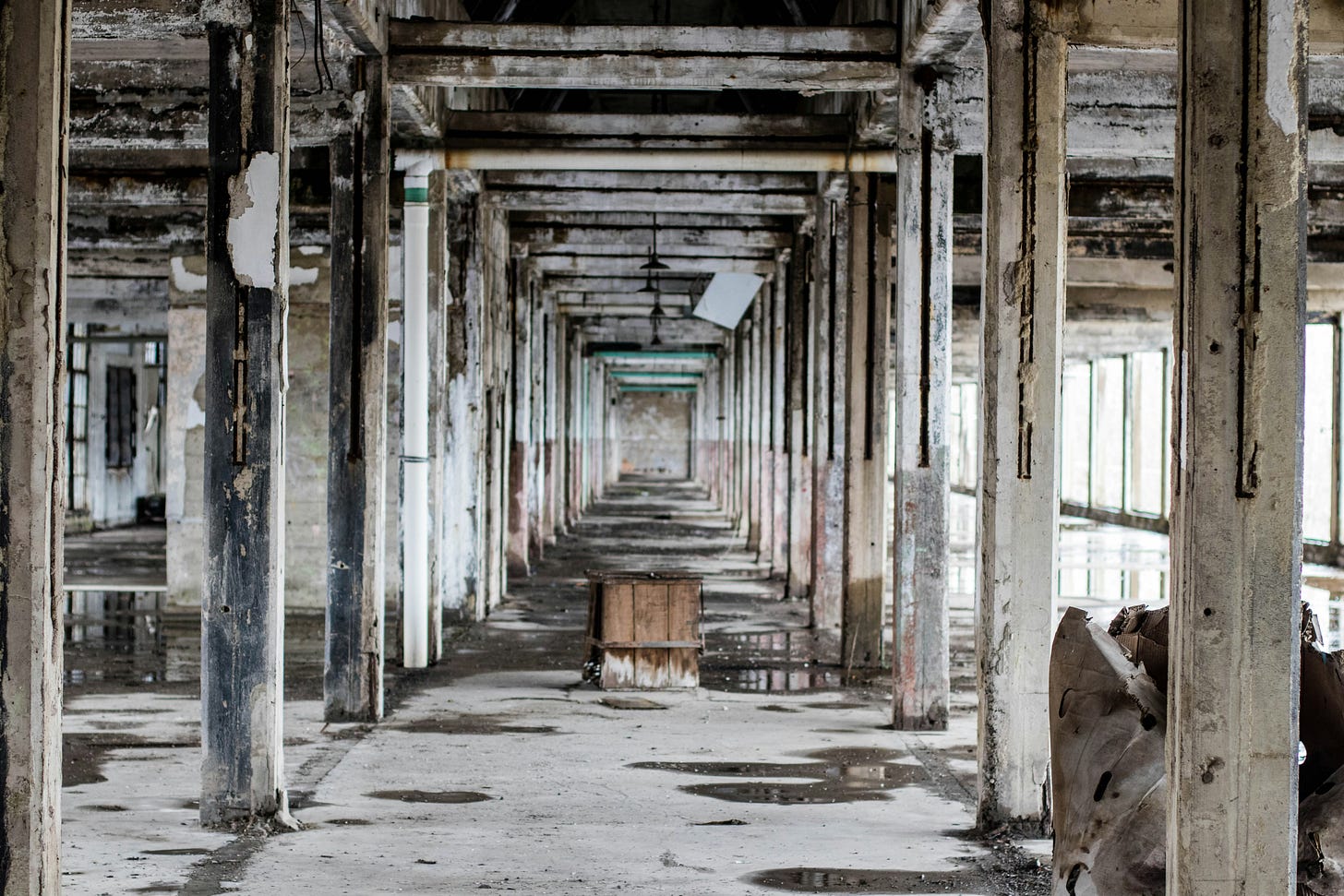WeBroke
In April, I wrote WeWorked, Until It Didn't, and discussed the turmoil the co-working company was facing. WeWork was bleeding money, suffocating under crippling debts, and was still locked into lengthy (and expensive) leases. The pandemic had resided, and — shock horror — people either returned to their offices or decided to save some cash and work from home. The situation had become so dire that, at the end of last year, Fitch Ratings downgraded the company’s long-term bonds to CCC, effectively a junk rating. The stock price plummeted to under $0.50. On the back of this, the company was given six months to get in shape or risk being delisted from the NYSE.
That stock price is now $0.21, down 45% in the last month and over 85% for the year. To put the downfall into context, WeWork is currently trading at a valuation of $361 million. It was once as high as $47 billion.
The risk of delisting is now a nailed-on certainty.
Not helping the continued collapse was the recent shock departure of CEO Sandeep Mathrani, who was brought in to salvage the post-Adam Neumann WeWork wreckage.
Mathrani was the anthesis of Neumann. He was calm, disciplined, and had a retail background. Gone was the mantra of “elevating the world’s consciousness” — WeWork was now a real estate company, and it would act like one. Under the new leadership, WeWork managed to survive the pandemic. Mathrani took the company public via a SPAC, got landlords to accept discounted rents (saving around $12 billion), and just recently finished restructuring the company’s spiraling debts.
But despite some progress, nothing was moving the needle. In an article published on Monday in the New York Times, details emerged about the departure, with one analyst saying that Mathrani was “abandoning ship.” Also abandoning ship was CFO Andre Fernandez, who left the company on June 1st after only a year in the role.
According to the article, Mathrani was fed up with a lack of engagement from SoftBank (who own 80% of WeWork). He had also put forward several opportunities for investment to steady the company, including one from co-working company IWG, who discussed a deal to operate WeWork’s locations in return for a fee. SoftBank wasn’t interested. Even the prodigal son himself, Adam Neumann, was rumored to be considering trying to buy back into WeWork to the tune of $1 billion. In the end, the talks never happened. No wonder — I can only imagine the revolt if he had managed to weasel his way back into the company.
The departures spell more bad news for WeWork. What faith remained that the company could turn its fortunes around is hanging by a thread. Any investor with a thread of common sense must have surely abandoned any hope that their investment will be rewarded with a return unless a handful of pennies counts.
So what next for WeWork?
One of the options on the table is bankruptcy. This would allow WeWork to restructure and rid itself of some assets and leases. But what would the larger consequences of that be? After all, WeWork rents nearly 20 million square feet of office space. That’s more than any other company in the United States. If the office market is already struggling, what sort of ripple effect does the bankruptcy of the biggest leaseholder have?
Who knows, but I doubt it’s positive. Even if the company restructured, it doesn’t solve the biggest problem — WeWork’s business model isn’t working. The landscape is far more competitive now, and the company has no USP to differentiate itself from its rivals (unless you count “the energy of We.”) Worse, companies continue to downsize their office spaces as they slowly realize hybrid working is here to stay.
At this point, WeWork needs a severe dose of the “power of We” to save itself. Or maybe the meme stock crowd will sense an opportunity and come to the rescue? It’s not beyond reason that there’s scope to pump and dump the stock when it’s currently priced so low.
Or perhaps they could put WeWork on the blockchain? Or sell WeWork NFTs? Incorporate Web3? Or better yet, pivot into an A.I. company?
Who am I kidding. Like the fad of fancy co-working space with free kombucha on tap, most of those bubbles have already burst.
And the next one to burst is WeWork itself.



